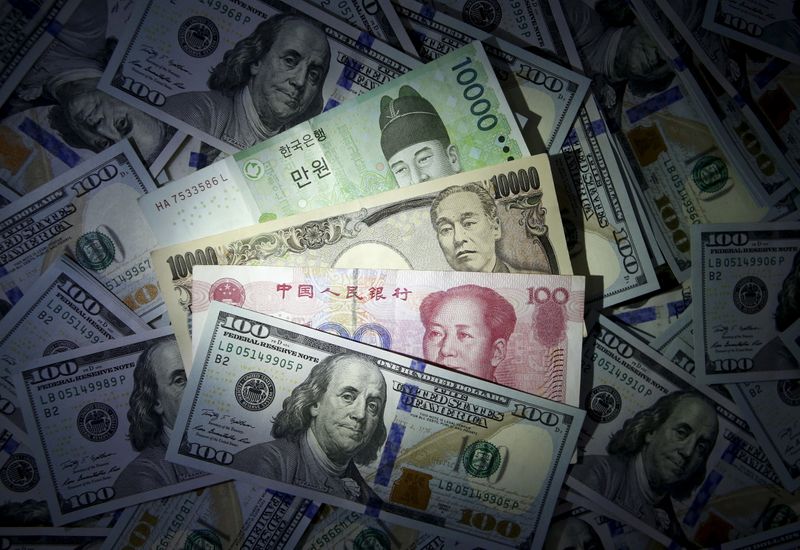By Stanley White
TOKYO (Reuters) - The yen was hemmed into a tight range on Monday before a Bank of Japan meeting where policymakers may consider scrapping limits on bond purchases and easing funding for companies hit by the coronavirus crisis.
Currency traders are also focused on a U.S. Federal Reserve meeting ending Wednesday and a European Central Bank (ECB) meeting Thursday as major central banks once again take the stage as the global economy battles against a deep depression.
The Fed has already announced a raft of measures and is expected to stay on hold this week, which is unlikely to trouble the dollar, analysts say.
The stakes are higher for the euro, because the ECB is likely to extend its debt purchases to include junk bonds, and some investors are worried this decision could widen rifts between members of the European Union.
"It will be difficult for markets to latch onto the BOJ, because it has already reached the limit of what it can do," said Takuya Kanda, general manager of the research department at Gaitame.com Research Institute in Tokyo.
"Every economy is suffering and all major central banks have already eased policy a lot, so it's difficult to differentiate from one currency to the next."
The yen
Against the euro, the yen (EURJPY=) traded at 116.29, close to its strongest level in three years against the common currency.
The yen also held steady against the Australian (AUDJPY=) and New Zealand dollars (NZDJPY=).
The BOJ is expected to leave unchanged its main policy targets of guiding short-term rates to -0.1% and keeping the 10-year bond yield around zero.
The BOJ will discuss scrapping its numerical target for government debt buying, the Nikkei newspaper reported, in a show of resolve to buy unlimited amounts of bonds.
Japan, like most major economies, has urged businesses to close and encouraged people to stay at home to curb to slow coronavirus infections, which is causing a widespread downturn.
In Europe and the United States, officials are now moving to ease some of these restrictions, but currency traders say they remain wary because threats posed by the virus have not been eliminated completely.
The dollar has risen in recent weeks due to a dollar funding crunch and safe-haven inflows, but some analysts say the greenback is likely to fall in the long term because the Fed has eased monetary policy more aggressively than other central banks.
Positioning in currency futures may give dollar bulls some reason to turn cautious.
Speculators' net bearish bets on the U.S. dollar rose to the highest in nearly two years in the latest week, according to calculations by Reuters and U.S. Commodity Futures Trading Commission data.
The euro (EUR=EBS) was little changed at $1.0825 in Asia on Monday. Against the pound (EURGBP=), the euro traded at 87.47 pence.
The ECB is under more pressure to act after EU policymakers last week failed to reach a consensus on the details of a 1 trillion euro emergency fund.
The pound
Johnson is due back at work on Monday after recovering from COVID-19, the illness caused by the coronavirus.

However, there is a lot of uncertainty about the virus testing regime in Britain and the strategy for exiting from lockdown.